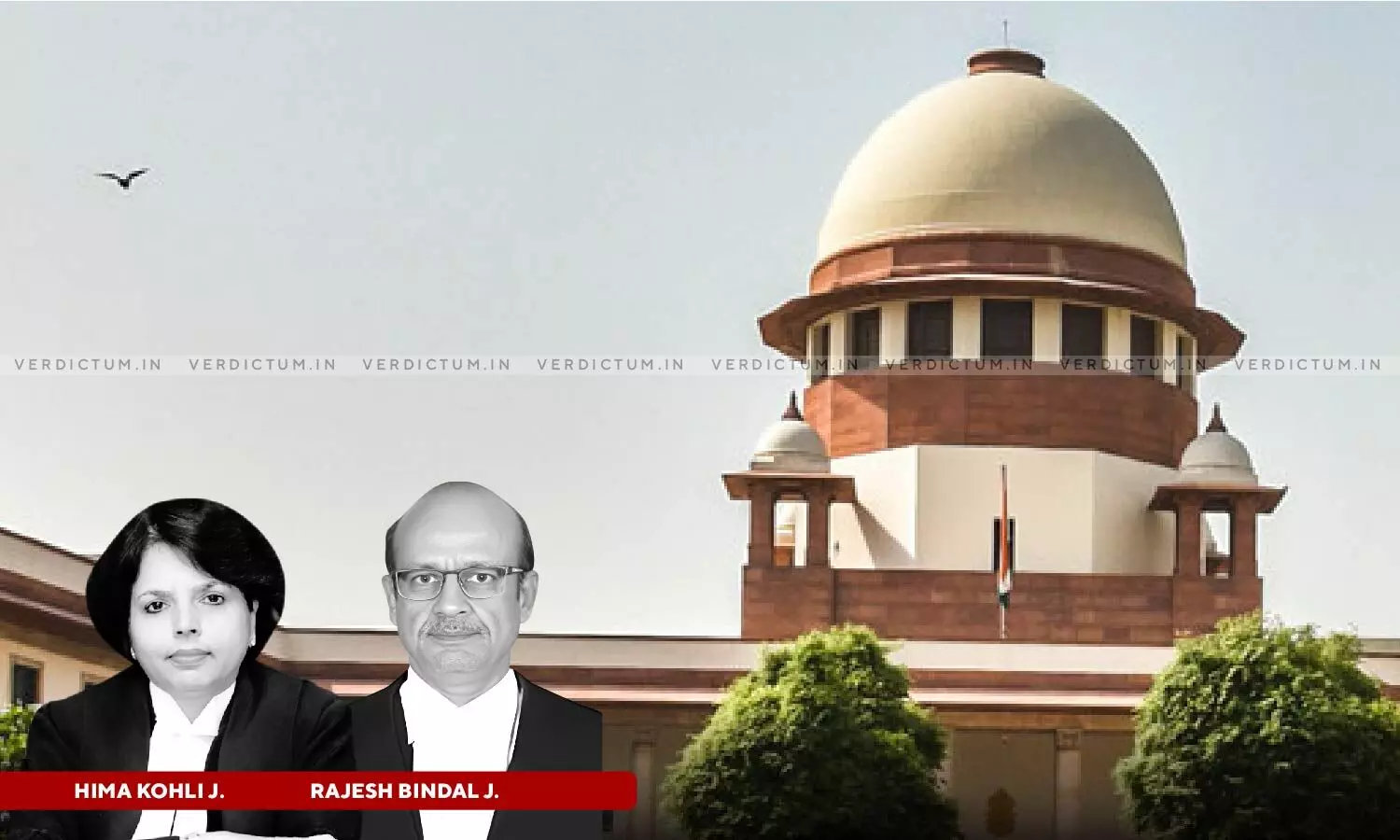
Acquittal Alone In Criminal Case Doesn't Guarantee Appointment In Law Enforcement Agency: SC Upholds Disqualification Of Constable Candidate
 |
|The Supreme Court has held that the respondent's prior involvement in a criminal case, followed by acquittal, does not automatically qualify them for a police constable position. The Court emphasized that candidates must meet stringent suitability standards, especially in law enforcement agencies, and their moral conduct should align with the responsibilities of the role. The case revolved around whether the respondent's prior involvement in a criminal case and subsequent acquittal should disqualify him from serving as a police constable, considering issues of moral turpitude and suitability for the position. The State Government had appealed to the Supreme Court, arguing that a candidate's character and suitability for police service should be considered, even if they were acquitted in a criminal case.
A two judge Bench of Justice Hima Kohli and Justice Rajesh Bindal held, “We are, therefore, of the opinion that mere acquittal of the respondent in the criminal case would not automatically entitle him to being declared fit for appointment to the subject post. The appellant–State Government has judiciously exercised its discretion after taking note of all the relevant factors relating to the antecedents of the respondent. In such a case, even one criminal case faced by the respondent in which he was ultimately acquitted, apparently on the basis of being extended benefit of doubt, can make him unsuitable for appointment to the post of a Constable.”
In May 2015, a criminal case was registered against the respondent under various sections of the Indian Penal Code (IPC) and the Protection of Children from Sexual Offences Act (POCSO Act). The case alleged wrongful restraint and harassment of a minor complainant.
During the trial, the complainant turned hostile, leading to a compromise between the parties. Charges under Section 341 of the IPC were settled, while other charges continued. Ultimately, the respondent was acquitted of the remaining charges due to the hostile testimony of the complainant and witnesses.
In 2016, the respondent applied for a police constable position in Ujjain and was selected. However, upon disclosing his prior involvement in the criminal case and subsequent acquittal in a verification form, the Superintendent of Police, Ujjain, found him unfit for government service, citing moral turpitude. The respondent challenged this decision through a writ petition, which was dismissed by a Single Judge. The respondent appealed the Single Judge's decision to a Division Bench of the High Court, which set aside the Superintendent's decision and ordered a fresh determination.
Advocate Bharat Singh appeared for the Appellants and Advocate Savitri Pandey appeared for the Respondent.
The Court said standard for assessing a candidate's suitability depends on the nature of the post and various factors. Candidates must provide accurate information about their character and background.
The Court cited the case of Avatar Singh v. Union of India and Others where the Bench laid down broad guidelines for evaluating disclosures by candidates with a criminal history. These guidelines included the requirement for candidates to provide truthful information about convictions, acquittals, arrests, or pending cases. The employer should also consider government orders, rules, and the nature of the position.
The Court discussed Daya Shankar Yadav case, and said that the purpose of seeking information about a candidate's antecedents, emphasizes that truthful disclosures are essential for assessing suitability.
The Court cited Rajasthan Rajya Vidhut Prasaran Nigam Limited v. Anil Kanwaria to emphasize the employer's right to consider credibility and trustworthiness when a candidate provides false information during the application process.
The Court added, “Even though the respondent had truthfully declared that he was involved in a criminal case which was decided by the trial Court vide judgement 26th October, 2015, on perusing the facts of the said case as noted hereinabove and the observations made in the judgement, quite clearly, this was not a case of clean acquittal.”
The Court upheld the State Government's decision to declare the respondent unfit for the Constable position due to his involvement in a criminal case involving moral turpitude, despite his subsequent acquittal. The Court further highlighted the importance of a higher moral conduct for appointments in law enforcement agencies. The Court added, “The yardstick to be applied in cases where the appointment sought relates to a Law Enforcement Agency, ought to be much more stringent than those applied to a routine vacancy. One must be mindful of the fact that once appointed to such a post, a responsibility would be cast on the respondent of maintaining law and order in the society, enforcing the law, dealing with arms and ammunitions, apprehending suspected criminals and protecting the life and property of the public at large.”
The Court concluded by affirming the judgment of the Single Judge and setting aside the Division Bench's judgment, thereby allowing the appeal.
Cause Title: The State Of Madhya Pradesh & Ors. v. Bhupendra Yadav, [2023INSC837]
Click here to read/download Judgment